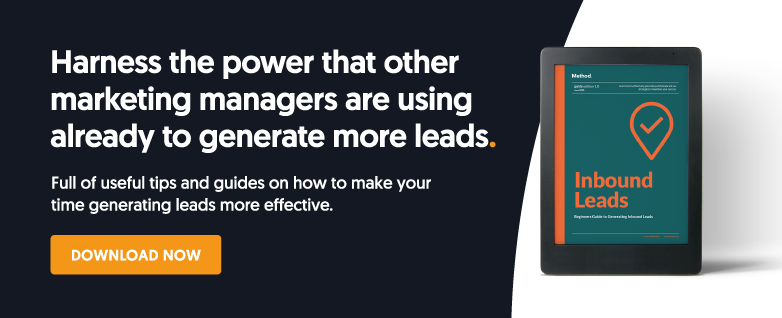Developing an effective marketing strategy is of fundamental importance to your brand, enabling it to evolve and helping to build equity in it. Sound content marketing enhances the value of your brand and contributes to its credibility. When you develop a marketing strategy that is on point, the conversation that it stimulates helps potential and existing customers identify with your company's mission and values and is integral to landing leads.
Regardless of the size of a business, content marketing is key to answering the questions which consumers are seeking answers to when looking to satisfy their needs. Great marketing also increases brand visibility in search engines and can improve its reputation. Exploring and promoting your brand's potential through the creation of informative literature will resonate with your targeted online audience. From podcasts, ebooks, blogs, vlogs, social posts, case studies, online tutorials and events, every type of content you generate will pique the interest of audiences you need to engage with, not only helping land sales but also cementing brand loyalty, thereby increasing the value of your brand over time. Every time a potential lead identifies with a piece of content, discovering an answer to a question they are asking related to streamlining their life and business, your brand's value skyrockets, giving it the opportunity to become a leader within its field.
Creating a sense of community around your brand and pursuing measurable results and ROI, content marketing all help to inform and educate your audience about the attitude and ethics you aspire to. Through the promotion of stories about your brand and what it offers you, your potential leads are presented with insights into how your business can offer solutions to the challenges they are seeking solutions to.
This process is integral to building long-standing relationships with your customers built on trust, which will, in turn, convert them into the sales you seek to achieve.
Stages of content marketing
The awareness stage: At this early stage in developing your content marketing plan, the problems potential customers are facing and the questions they are seeking answers to need to be considered and addressed. Content marketing should aim to focus on pain points, challenges and questions that connect you to customers whose trust you need to earn, enabling a bond to be forged which fosters long term professional relationships. This stage is the point at which you should cultivate and produce short-form content articles, videos, ebooks and newsletters. Ten-stage lists, Instagram posts and reels or TikToks are good examples of awareness stage content.
The consideration stage: At this point, your audience needs educating about your product or service, blending information and marketing to solve solutions to their problems. Think 'how to?’ A great example of consideration stage marketing materials is illustrated in Method's innovative podcast series 'Behind the Madness'.
By addressing common issues your audience may encounter and educating them about concepts central to successful marketing and effective retailing, consumers feel valued and their professional education can be thereby enriched.
The closing stage: The most critical stage in the content marketing matrix focuses on persuading your customer the reason that your business and its products or services are the best fit for their needs. At this stage, you must emphasise how your brand's expertise will enrich your customer's product or services lifecycle. Case studies, product videos, buyer's guides, or user-generated content through customer stories are all prime examples of closing stage marketing assets. An excellent example of how this works is when a performing artist releases an interview illustrating how they conceptualised their soon to be released album. This is the elaboration stage, explaining how the overall product has come into existence and how it can be related to and understood on every level.
Authentic content helps to move consumers through the sales pipeline to become qualified leads more quickly. In addition, the higher the quality of the leads which are driven to the sales department, the greater the likelihood of converting prospective sale
Increased sales traffic is generated when customers are a
Content marketing can help set your brand apart from other competitors which are out there. Build brand loyalty and increase
How to implement a content marketing strategy
Now that you know why a content marketing strategy can help strengthen your brand, learn how to create your own marketing strategy and its associated processes.
Decide on a target audience: Read our buyer personas guide on how to speak to the target audience. It's imperative that you understand who it is you need to speak to and communicate effectively with in order to achieve the sales outcome you seek. Conduct thorough research to define your target audience and understand their pain points and drivers. This can be done using an audience segmentation strategy.
Pre-determine the correct type of content marketing: Decide on the most suitable format your content marketing should take, from vlogs, podcasts, lists, long-form think pieces to downloadable PDF's. Work out how your audiences will best utilise your assets.
Appoint a content creator to conceptualise these assets: An experienced digital publisher who understands how to generate traffic towards new leads should be responsible for producing marketing copy, writing blogs, managing social media content and much more. Your content creator is a vital team member and high-quality content will increase profit margins and inspire new leads.
Content Mapping
Conceptualising content assets that speak to buyers at different customer lifecycle stages helps push content in front of the exact people you are targeting products or services with. Content mapping is designed to speak to the buyer's needs at a certain point in their journey, essentially inspiring a purchase that leads to brand loyalty. This is all about how your brand delivers the right content to the right audience at the right time.
Build a schedule
Too many brands put effort into producing sporadic marketing assets without having further content to follow up with. Inconsistency will cost your business it's loyal following. Long term content strategy is imperative to success. Audiences want to follow your social media pages, digesting the vlogs, podcasts and literature to improve their businesses, guided by your expertise. Experiment with the different content formats to see what resonates best with your consumers. Once you have established this, map your content schedules for the next 3 - 6 months. Mapping too soon in advance of this can mean you create outdated assets.





